The greatest 50 cycling books of all time: 40-31
Continuing our countdown of the best cycling books ever written.
The greatest 50 cycling books of all time: 50-41
The greatest 50 cycling books of all time: 30-21
The greatest 50 cycling books of all time: 20-11
The greatest 50 cycling books of all time: 10-6
The greatest 50 cycling books of all time: the top five
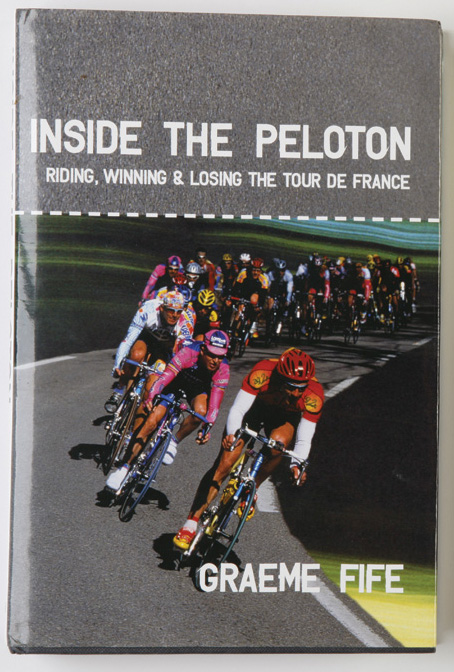
40. Inside the Peloton - Riding, Winning and Losing the Tour de France
Get The Leadout Newsletter
The latest race content, interviews, features, reviews and expert buying guides, direct to your inbox!
Graeme Fife, 2001
A personal account of Fife’s own relationship with cycling and professional cyclists. Fife’s conversations with major stars are interlinked with the author’s own ruminations on the sport.
'One Wednesday morning in late March last year the phone rang. A man’s voice asked me, in French, if he was talking to Graeme Fife. “Oui,” I said. "C’est Bernard Hinault,” he replied. Blimey.'
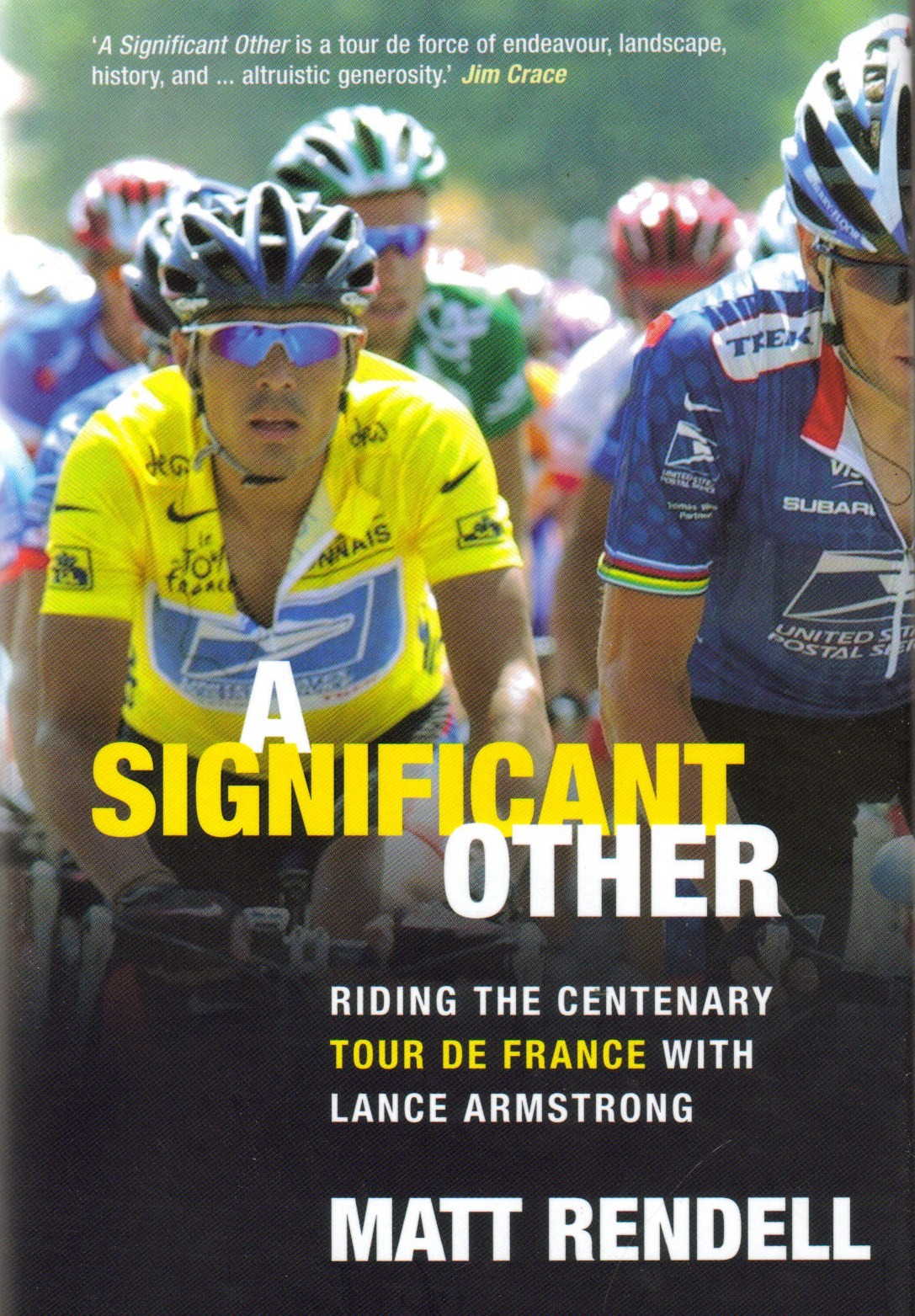
39. A Significant Other
Matt Rendell, 2004
Rendell’s knowledge of and passion for Colombia means he connects directly with his subject, Victor Hugo Pena, Lance Armstrong’s former domestique.
'Sport brings fame and wealth, but it can also distance you from your country, especially when you come from a developing nation. I’ve never wanted to live anywhere but my village, with people who have always known me. When I meet old friends, I want to have normal conversations. But they’re already thinking “How much did that watch cost? God knows how much he must earn.”'
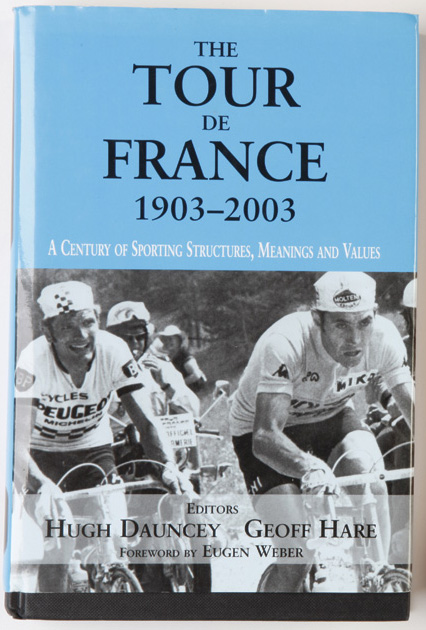
38. The Tour de France 1903-2003 - A Century of Sporting Structures, Meanings and Values
Edited by Hugh Dauncey & Geoff Hare, 2003
Quite unlike any other of our top 50 books – this is an academic look at the Tour de France. It looks at the race’s history, and casts a sociologist’s eye over the Tour’s place in French culture and history. Warning: it’s not a lightweight read.
'The Tour interprets France as nation and Republic in the ways in which its roots annually maps out the traditional physical boundaries of the Frances of both the Ancien Regime and post-Revolutionary Republican eras.'

37. Greg LeMond - The Incredible Comeback
Samuel Abt, 1990
The original comeback from the jaws of death. LeMond was shot while hunting during the off-season but fought back to win the Tour twice. A gripping story, neatly told but you can’t help but wish for more of a contribution from LeMond himself.
In 1978, when was just short of 17 years old, Greg LeMond sat in his bedroom and on a yellow pad wrote down his goals. “Place well, for experience, in junior World Championships. Then I wrote that in 1979 I want to win the junior Worlds. The following year I wanted to win the Olympic road race. By the time I was 22 or 23 I wanted to win the professional World Championships, and by the time I was 24 or 25 I wanted to win the Tour de France.”
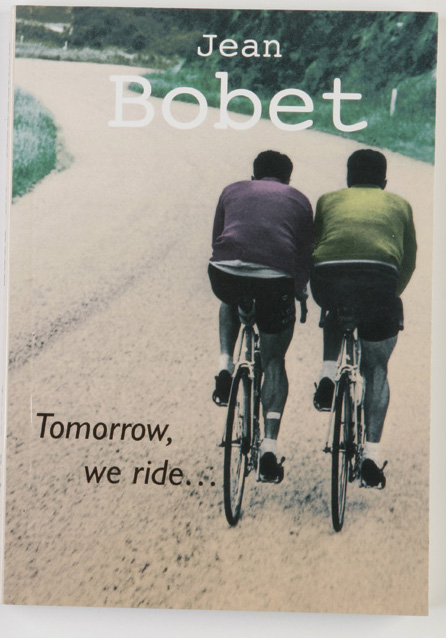
36. Tomorrow we Ride
Jean Bobet, 2004
Evocative writing from rider-turned-writer Jean Bobet. The translation has its idiosyncracies, but few other writers have been able to communicate the joy of bike racing and riding like Bobet.
'The wheelsucker is full-time vermin, a rat in perpetuity. The rat is invisible, hidden, non-existent until 100 metres from the finish, when he suddenly heaves himself into action, his one and only effort, under – if not up – the noses of those who have built up and led the race over many, many kilometres. Wherever you went, the wheelsucker was regarded as excrement. He still is, I’m told.'

35. European Cycling - The 20 Greatest Races
Noel Henderson, 1989
When it first came out, this was like opening a magic door to the world of European Cycling. Read today, with so much information available at the click of a mouse, it may seem it says nothing new but back then it explained everything. Why the races were like they were, how they were established and who the legends of the sport were.
'On Paris-Roubaix: In 1960 came live television coverage for the first time. Viewers marvelled at the daring of a young unknown who, it was later claimed, based his attack at a railroad crossing upon advance knowledge of the times when trains were due. He had 50 miles to ride as the gates closed behind him and he lasted 45 of them before he was caught. This was Tom Simpson’s first great ride.'
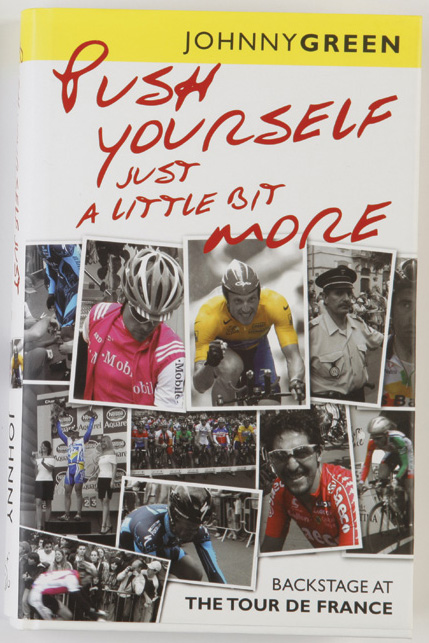
34. Push Yourself Just a Little Bit More
Johnny Green, 2005
The former road manager of The Clash was presumably used to hitting the road for long, chaotic tours. His impression of life behind the ropes at the Tour de France is humorous and biting at times. Green cares deeply about the Tour, but his advantage as a writer is that at the same time, he doesn't care. The quirky style brings to mind a sitcom’s approximation of how a rock band’s roadie talks, which isn’t to all tastes.
'Richard Virenque is the darling of the French. Women of a certain age adore him. He is eternally boyish in a Cliff Richard meets Edgar Allan Poe kinda way. I call him the weasel-faced rent boy. I have seen that calculating innocence in the backstreets of King’s Cross and Piccadilly.'
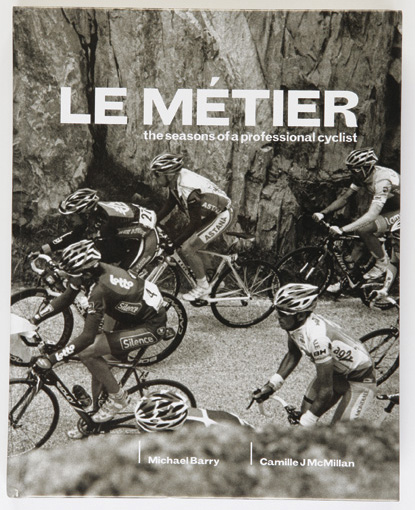
33. Le Métier
Michael Barry. 2010
When Dan Coyle researched Lance Armstrong’s War, he said that the best insights he gained into what cycling was like for a professional came from talking to Michael Barry. Barry communicates the physical, mental and emotional sensations of cycling in this book which covers a full season in the life of a racing cyclist. Barry’s words are supported by excellent and unusual photography.
'During his cycling career, while living and racing in Belgium, the Dane Brian Holm would only read novels relating to the two Great Wars. Although the Danes are known for their tenacity in adverse conditions, even he found the conditions in Belgium challenging. Daily, Holm raced and trained through the fields that the soldiers had fought and died on. For years, to strengthen his constitution and bring perspective he read novel after novel of the terrors the young boys had endured in the trenches in Flanders fields. Somehow, it gave him purpose, motivated him, and made his job easier.'
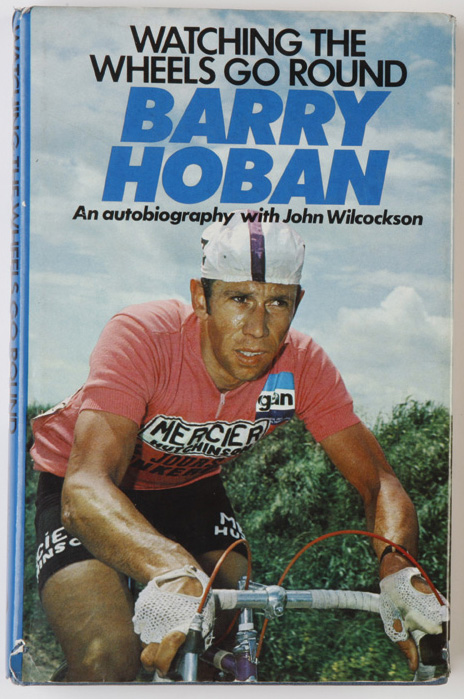
32. Watching the Wheels Go Round
Barry Hoban, 1981
An office favourite, with a quirky style which we’re not sure is deliberate. Hoban’s account of his life as a cyclist is chronological and formulaic, but he was a cheeky and talented outsider who was able to observe the best racers of the 1970s from close quarters.
'At Chateau Chinon, I went up to Altig and Janssen before the start, and asked: “How’s things today?” To this day I can vividly remember Altig’s words – “The big boys are riding together, so you little boys can do what you want.”
At the finish I outsprinted Grain for first place. A lap later, Altig came in for third place ahead of the bunch. Not being one to respect reputation, I went over to the piqued Altig and said: “Salut, the big boys!”'
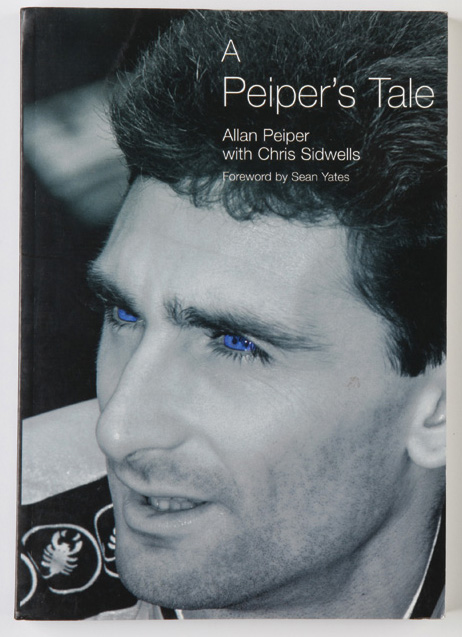
31. A Peiper's Tale
Allan Peiper with Chris Sidwells, 2005
When he was young, Peiper found the bicycle was a refuge from an alcoholic and abusive father and kept on riding, perhaps thinking it would eventually reveal to him the meaning of life. At times a difficult read, particularly when Peiper is talking about his struggle to adapt to life after cycling. But there are moments of levity too.
'We [Eddy Planckaert and Peiper] used to play this toughening-up game where we stripped off our clothes and flicked at each other with rolled up towels. For every ten hits on him I got 50 back. Our bodies would be covered in welts.'
The greatest 50 cycling books of all time: 50-41
The greatest 50 cycling books of all time: 30-21
The greatest 50 cycling books of all time: 20-11
The greatest 50 cycling books of all time: 10-6
The greatest 50 cycling books of all time: the top five
This article first appeared in Cycle Sport December 2010
Follow us on Twitter: www.twitter.com/cyclesportmag

Thank you for reading 20 articles this month* Join now for unlimited access
Enjoy your first month for just £1 / $1 / €1
*Read 5 free articles per month without a subscription

Join now for unlimited access
Try first month for just £1 / $1 / €1
Edward Pickering is a writer and journalist, editor of Pro Cycling and previous deputy editor of Cycle Sport. As well as contributing to Cycling Weekly, he has also written for the likes of the New York Times. His book, The Race Against Time, saw him shortlisted for Best New Writer at the British Sports Book Awards. A self-confessed 'fair weather cyclist', Pickering also enjoys running.
-
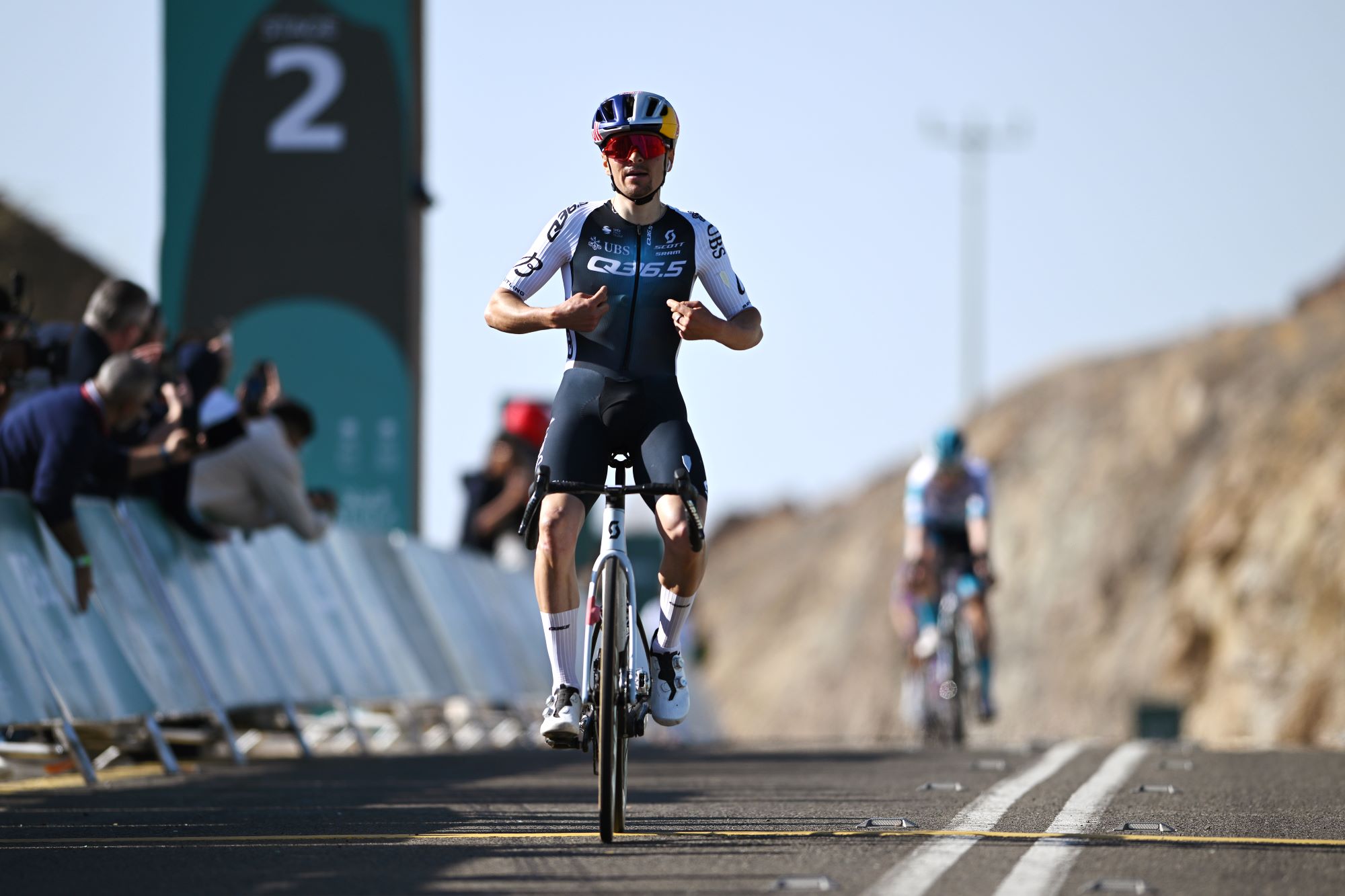 What does Q36.5 mean? We asked the people behind the Italian kit brand that sponsors Tom Pidcock's team
What does Q36.5 mean? We asked the people behind the Italian kit brand that sponsors Tom Pidcock's teamQ36.5's Luigi Bergamo and Lodovico Pignatti Morano take on Cycling Weekly's Q&A
By Tom Thewlis
-
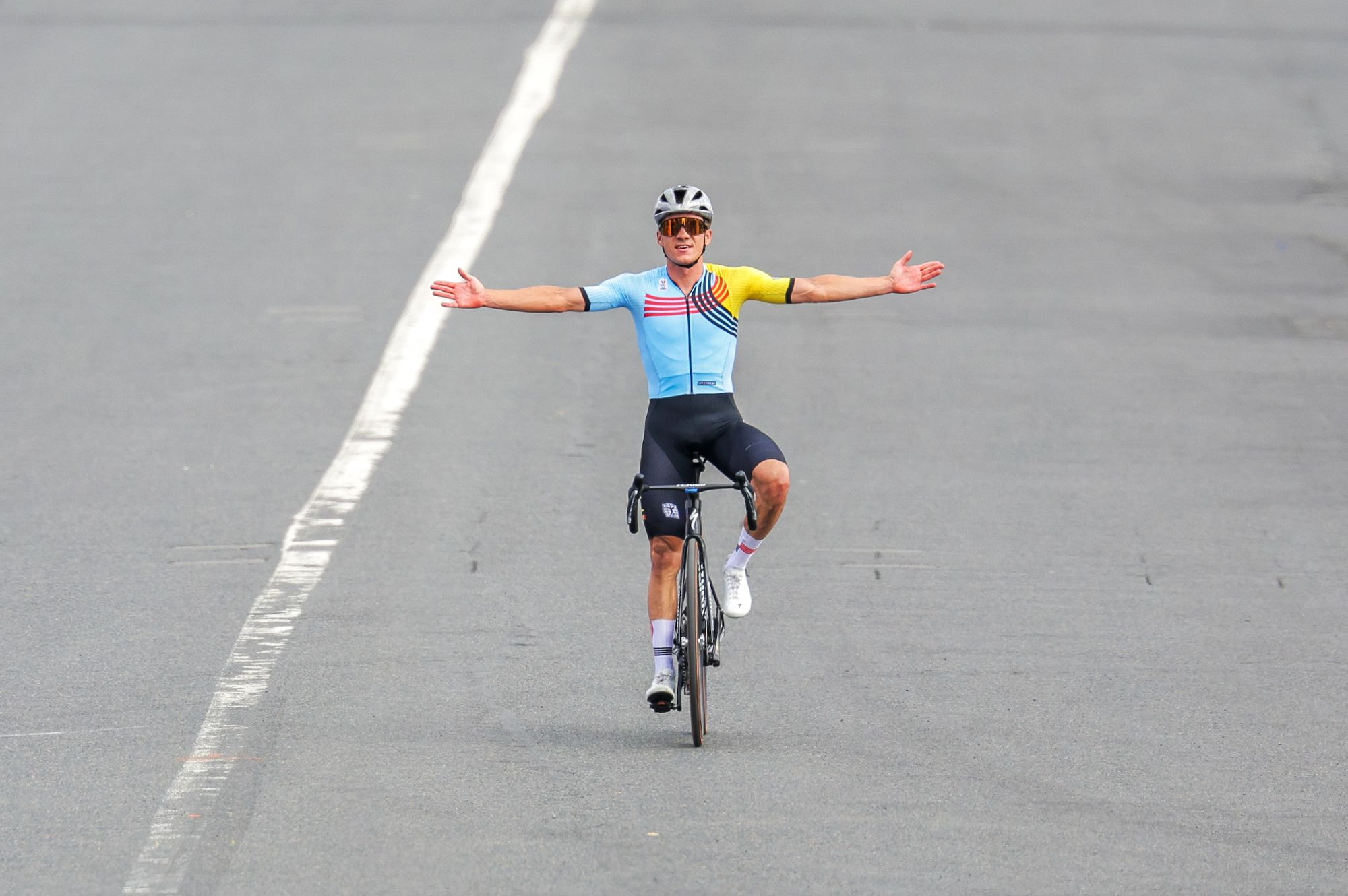 'If I were a tennis player then my career would be over': Remco Evenepoel contemplated early retirement after serious training accident
'If I were a tennis player then my career would be over': Remco Evenepoel contemplated early retirement after serious training accidentDouble Olympic champion was left with nerve damage and says his shoulder is not yet fully healed ahead of his return to racing at Brabantse Pijl
By Tom Thewlis
-
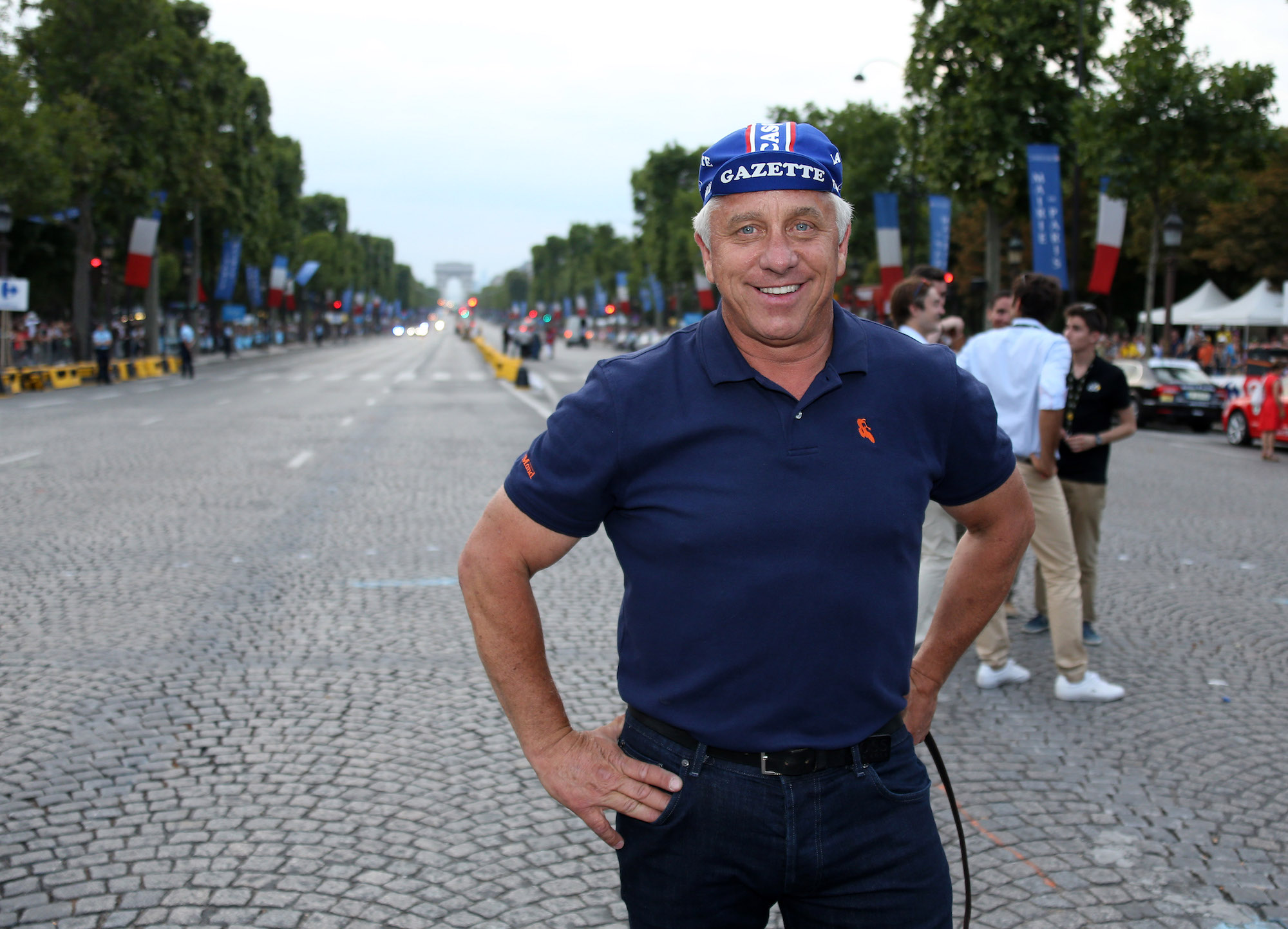 Greg LeMond becomes first cyclist to receive Congressional Gold Medal
Greg LeMond becomes first cyclist to receive Congressional Gold MedalLeMond becomes only the 10th athlete to win the highest civilian award in the USA
By Jonny Long
-
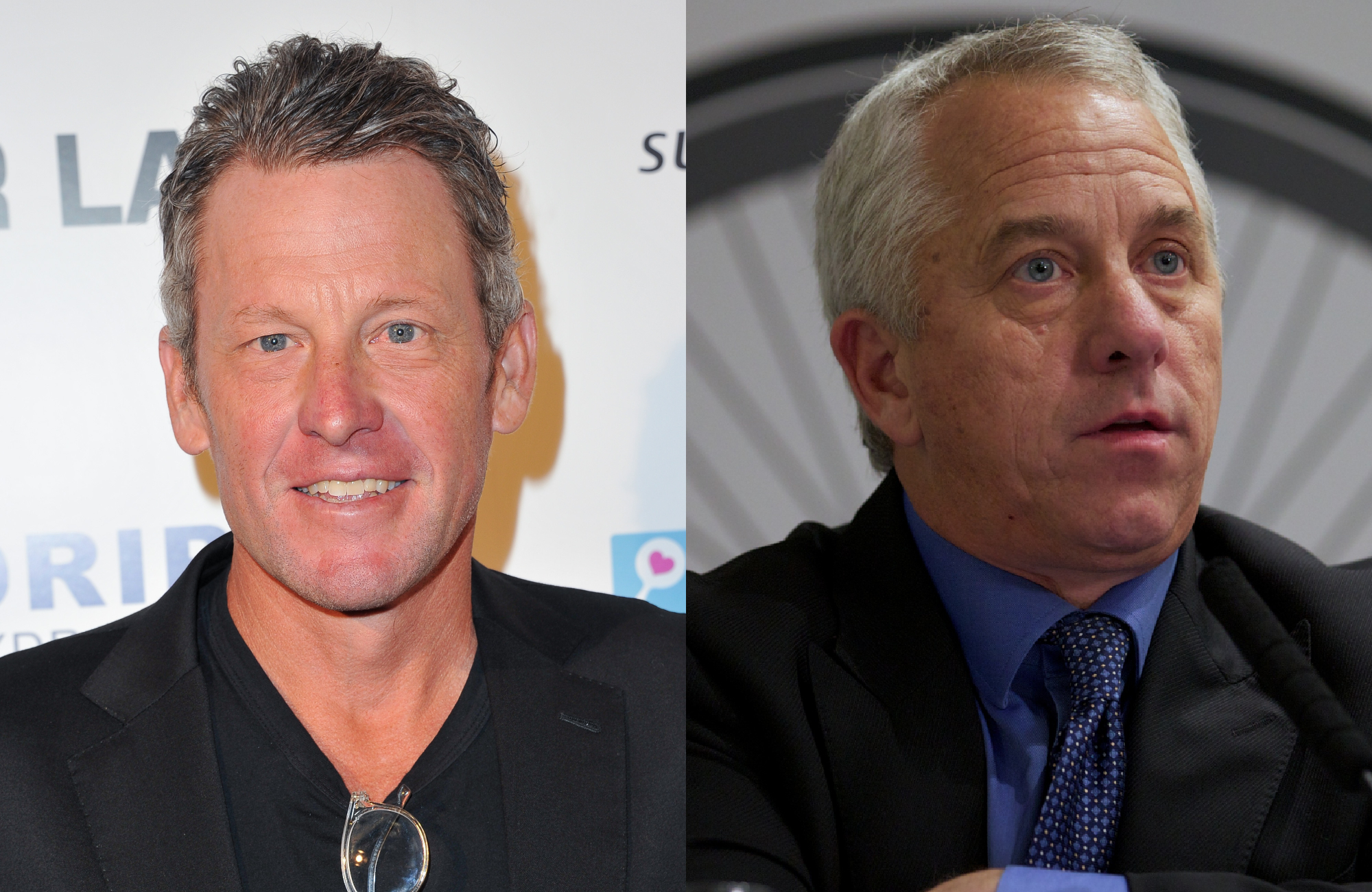 Lance Armstrong says he didn't like the Greg LeMond part of the ESPN documentary
Lance Armstrong says he didn't like the Greg LeMond part of the ESPN documentary'There are still very specific things that I think still upset him,' said the film's director
By Jonny Long
-
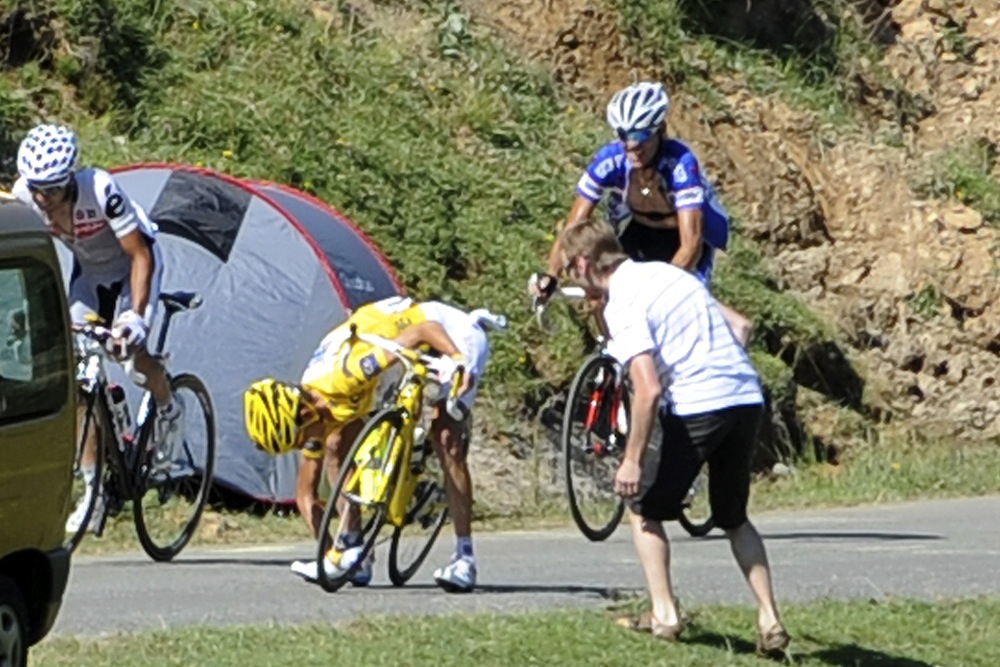 Five times the Pyrenees blew the Tour de France wide open
Five times the Pyrenees blew the Tour de France wide openThe Tour de France can be won and lost in the Pyrenees, so take a look at some of the iconic moments in recent Tour history in the mountain range
By Stuart Clarke
-
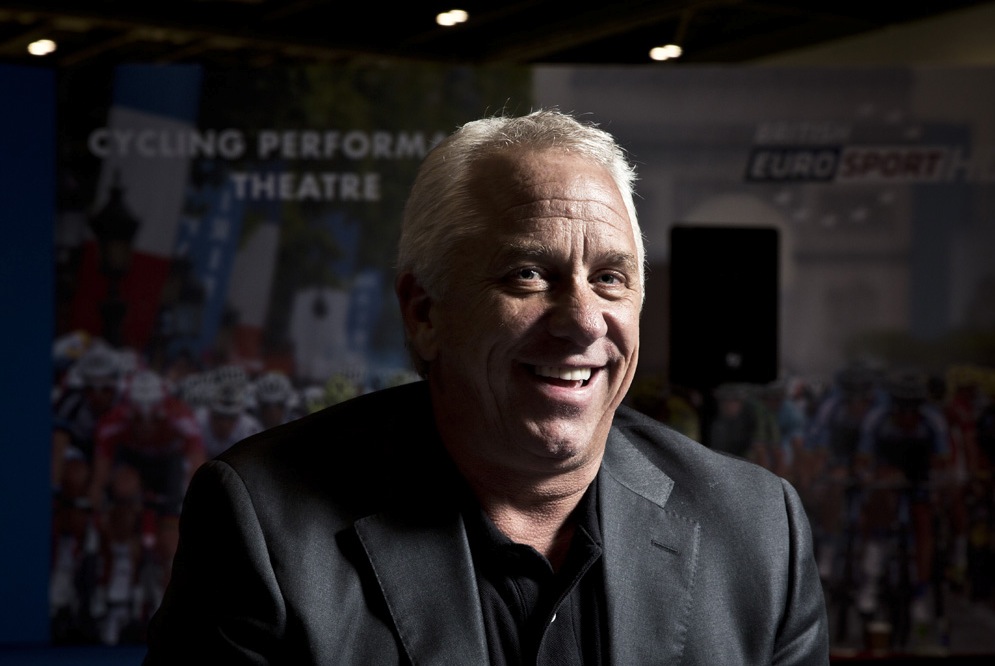 Greg LeMond: The Giro was like a training ride in my day
Greg LeMond: The Giro was like a training ride in my dayThree-time Tour de France winner Greg LeMond backs Alberto Contador's Giro-Tour double, but says it will be harder than when he rode them in the eighties.
By Stuart Clarke
-
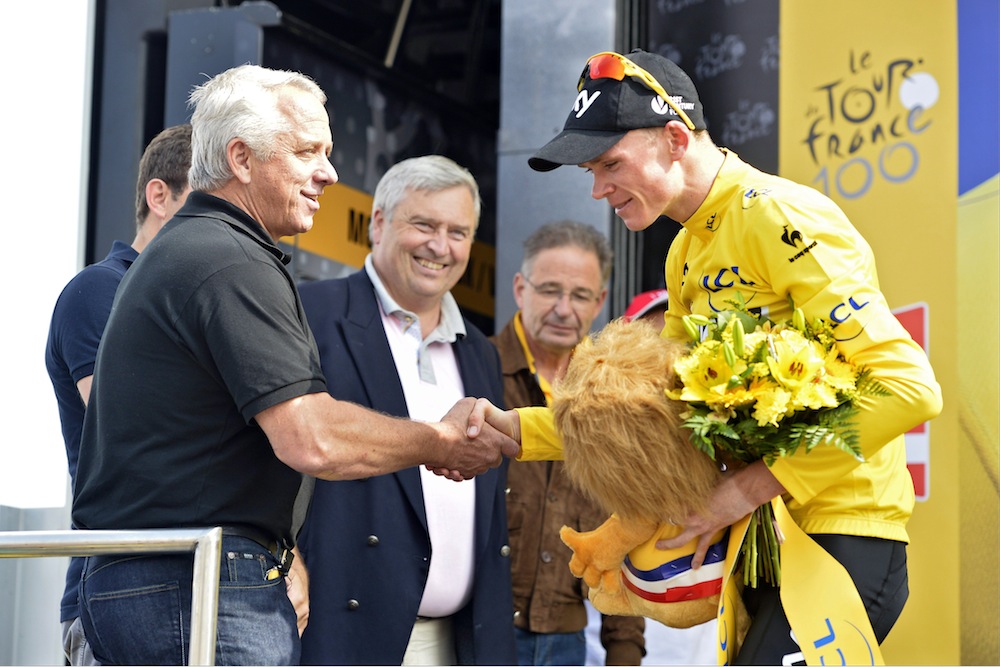 LeMond: Quintana will be Froome's biggest Tour de France rival
LeMond: Quintana will be Froome's biggest Tour de France rivalThree-time Tour de France winner Greg LeMond is backing Chris Froome to win the Tour de France, but insists Nairo Quintana will give him a run for his money
By Stuart Clarke
-
Classic races: 1990 Tour de France
By Edward Pickering
-
Laurent Fignon: A tribute to an icon
French cycling lost one of its most enigmatic figures earlier this year, when two-time Tour de France champion Laurent Fignon died. Here is our tribute to a man who stood apart from the crowd.
By Edward Pickering
-
 Classic Races: Tour de France 1990
Classic Races: Tour de France 1990An early escape turned the 1990 Tour into a three-week game of catch-up for reigning champ Greg LeMond. Would he recapture last year’s triumph or had he left it too late?
By Cycle Sport